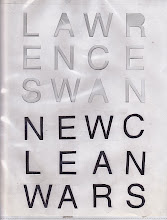I went to Jupiter Elementary School from 1960 to 1962, first and second grade, and I learned how to read, and how to add and subtract, and how to tell time. I also learned some other things I'm still trying to process.
Jupiter Elementary was next to, or attached to, Jupiter High School. I remember our class standing in line in the high school, maybe we were in the cafeteria, when the kids spotted her, the black girl. "There she is." She was the only black student in the school, and my recollection was of this lone girl, looking scared, looking like a Martian.
One night my parents went to a PTA meeting and they had me wait in the school auditorium where final rehearsal for a school play kept me amused. The play was a lot like the comic strip Li'l Abner. I liked Li'l Abner a lot (maybe as much as Alley Oop) and I liked the movie musical that was based on the strip, and this was like that, but with different music and different characters. The actors spoke in the same exaggerated Dogpatch dialect and now and then broke into sentimental songs about the South like, "Is It True What They Say About Dixie?"
Not long after I saw the rehearsal, maybe the next day, I saw the actual play and I was astonished to see all the actors were in blackface. I wasn't offended, I didn't think it was wrong, but it blew my mind to see these funny crackers turned into funny colored people.
Although the Supreme Court ruling that segregation violated the Fourteenth Amendment had happened in 1954, the year I was born, Palm Beach County refused to desegregate its schools until a U.S. District Court ordered them to admit black students into nearby white schools. By then, I was in the second grade.
I don't remember if the school minstrel show I saw happened after its first Negro student arrived, or if the play was the previous year, when I was in first grade. This summer, while I was reading a book about the Civil Rights movement, I thought about the play. Was it a satire about desegregation? Was it thought of as harmless, apolitical, wholesome fun? And I thought about that girl. Who was she? I asked Google.
Her name is Iris Hunter Etheredge. She was one of a handful of black high school students in Palm Beach County who tried to cross the color barrier that year. Her first day at Jupiter she thought she would be accompanied by six friends from her old school, but they didn't show, and she was on her own, except for the Federal agents who protected her from people like the crazy white lady across the street who was waving a shotgun --
"If that n----- gal gets in the school, I'm going to shoot her."
Now I think of the Civil Rights movement as more than a political movement that brought about legislation and pressured communities to change some things. It was a spiritual struggle as well, in that it sought to change the consciousness of people who were still conditioned to think of people of African descent as belonging to a permanent underclass, if not as slaves to be traded on the market. Its an ongoing struggle, and it is not only about race, but racism is probably the most painful aspect of this struggle to make America live up to its promise. It is very difficult for people to change, to overcome their fears, their ignorance, their prejudice, their paranoia. Black churches, even a few white churches, were involved in the struggle for equality, because it is a spiritual war, this war against institutionalized exploitation, as one of its better known leaders understood, near the end of his life, in his despair, when he said that America is sick and violent, and he might not make it to the Promised Land.
Here is a link from a 2004 article about Iris Hunter Etheredge:
_black-student-equal-schools-new-schools



